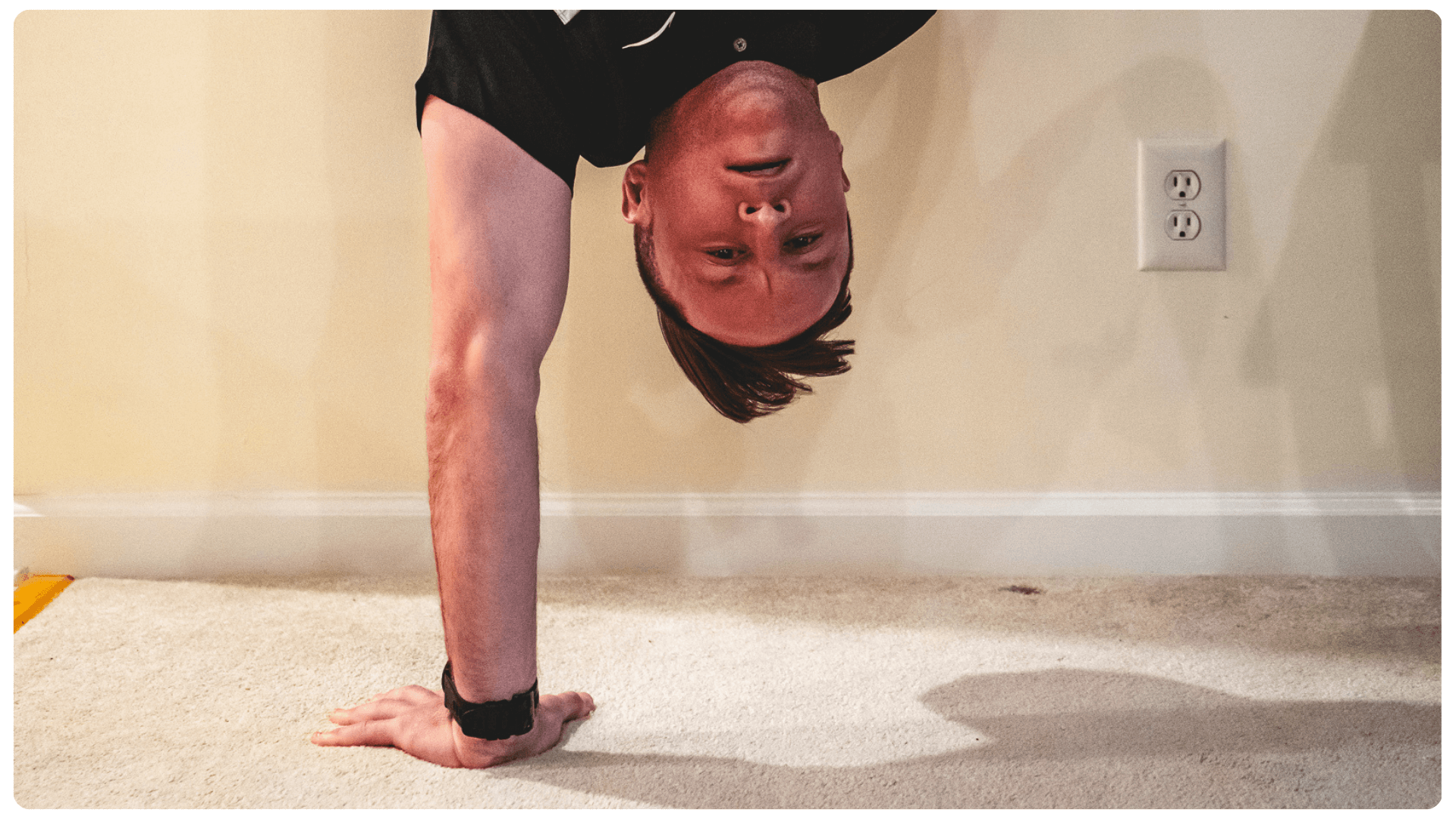Clarity Creates Confidence
“What do you know now that you wish you knew back then?” This is perhaps the most important question a student could ask a mentor or role model. If I...

We cannot control our emotions. We channel, harness, and manage our emotions by the words we say to ourselves.
To be physically strong, we go for a run or to the gym. To be spiritually sound, we join something bigger than ourselves, a community or connect with nature. To be mentally resilient, we work on becoming more present. What about emotional fitness?
Growing up, we are told by coaches, parents, and teachers to control our emotions. After decades of playing sports at a high-level and multiple years of researching sport psychology, I have discovered we cannot do that.
Therefore, what we think about and how we talk, especially to ourselves, matter!
When working with a golfer on his mental performance, he mentioned playing consistently well until he hits two bad strokes in a row. When I asked him to elaborate further, he stated that one curse word leads to another, which turns into poor body language, lack of focus, and overthinking. In a similar way to hitting numerous shots on the practice range and putting green, we agreed he would rehearse affirmations and uplifting self-talk between shots.
Alongside deep belly breaths to promote further relaxation, his bounce-back ability skyrocketed. Instead of an avalanche of negativity after two strokes, he went on to save pars, navigate adverse circumstances, and regain composure deep into rounds and tournaments. Recently, after securing a championship trophy, he remarked,
My self-talk made all the difference.
Once thoughts and words create emotions, relative actions follow. Someone who uses a rainfall of negative internal and external narratives is likely to storm about with tense, fight-or-flight-driven body language. Someone who uses truthful, uplifting statements such as, “I got this,” remains neutral and poised for success. Verbal language provokes comparative nonverbal behaviors.
We enhance our emotional well-being in two ways: (1) bottom-up approaches and (2) top-down approaches.
Bottom-up approaches: actions and movement, which change our internal chemistry, such as running, walking, dancing, yoga, judo, hiking, etc.
Top-down approaches: talking, thinking, and writing.
Problems arise when we spend too much time thinking instead of speaking out loud or releasing our thoughts on to paper.
Anxiety is unfocused fear.
– Arthur Brooks, author of multiple best-selling books and Harvard University professor
When we focus our fear into speech and writing, it subsides. Very few activities are more rewarding than therapeutic conversations with trusted loved ones. What we think, talk, and write about affects us emotionally. Affective emotional regulation derives from affection with friends.
If bottom-up approaches change our mental state and top-down approaches alter our emotional state, what's the difference between mental and emotional health? Put simply, mental health is what we focus on, and emotional health is what we feel.
Emotional health is embedded inside of mental health. Have your feelings ever gotten in the way of your focus? Have you ever become so angry or sad that you could not focus on the cognitive information presented to you? Or can you remember a time when you were “not thinking clearly” because a cloud of frustration engulfed your attention?
The mind is flexible, if we know how to bend it. If you have a fever, you can take something to bring it down. Likewise, our mind has a psychological immune system: We can use our thoughts to change our thoughts – by adding distance.
– Dr. Ethan Kross, prominent psychologist known for his work on the science of self-talk and emotional regulation, and author of Chatter: The Voice in Our Head, Why It Matters, and How to Harness It
Our voice, both internally and externally, programs our performance. Our thoughts become things. So many situations remain outside of our control! Often, events happen that we wish did not. And sometimes, we make matters worse by thinking and talking negatively. Negativity works negatively 100% of the time. To ensure an inconvenience does not become a tragedy, we channel, harness, and manage emotions through uplifting thoughts and words of encouragement. In courage, we rise.
Life is a continuous series of self-fulfilling prophecies.
Our thoughts and words dictate how we see, feel, and experience the world.
The quality of our communication determines the quality of our performance.
Mark was born and raised in New Jersey where he became an elite high school student-athlete. He earned varsity letters as captain of his high school football, basketball and lacrosse teams and was elected into the National & Spanish National Honor Societies. He attended a post-graduate academic program at Deerfield Academy in Deerfield, MA before college where he earned his Bachelor of Arts degree in Economics from Yale University in New Haven, CT. He is currently a graduate student working toward his doctorate degree in Sport & Performance Psychology at San Diego University for Integrative Studies under Dr. Cristina Versari, Founder & CEO of SDUIS and former Head of Sport Psychology for the National Basketball Association. He is a Teaching Associate with Dr. Robert Gilbert, a Professor at Montclair State University (NJ) and a leading authority and author in the field of Applied Sport Psychology. Mark is currently the lead Mental Health & Wellness Player Advocate for the Premier Lacrosse League.
Mark is a Certified Fitness Trainer, Nutritionist, and Mental Performance Coach. He is currently pursuing a graduate degree in Sport & Performance Psychology at the San Diego University for Integrative Studies.
At Mark Glicini Peak Performance, we recognize that physical health reflects mental health. We study how intention drives behavior and emphasize that true peak performance requires an integrative approach—mind, body, and spirit.
As the Mark Glicini Meaningful Growth Foundation embarks on a journey of endurance and togetherness against the trials and tribulations brought upon by cancer, I state: every inch of my heart is in this.
Like so many, cancer has had a profound impact on my life. It took the lives of my grandfather and uncle before I was born. For years starting in 2011, I stood by my mother’s side as she battled and overcame lymphoma. Her fortitude, unwavering support from loved ones and God’s will triumphed amid extreme adversity.
Although we have not and may not win every fight, we will relentlessly strive to make an individual’s growth meaningful and to ensure his or her family feels cared for and supported. Thank you for your love, God Bless!

“What do you know now that you wish you knew back then?” This is perhaps the most important question a student could ask a mentor or role model. If I...

How many of us are in school yet not into school? How many of us are in a relationship yet not into the relationship? How many of us are in a place...

Building off last month’s post of knowing your numbers based on the Yerkes-Dodson Curve, optimal performance is realized through an interplay of...